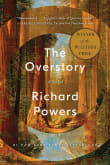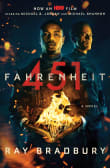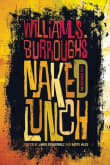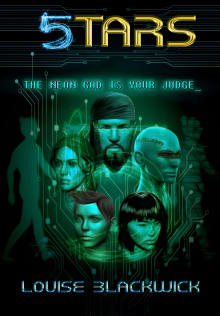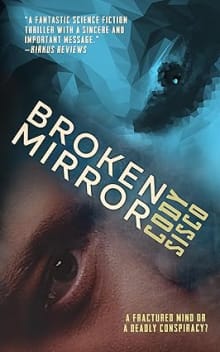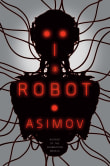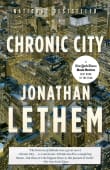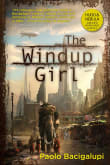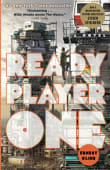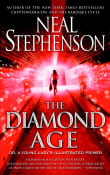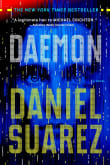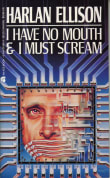Do Androids Dream of Electric Sheep?
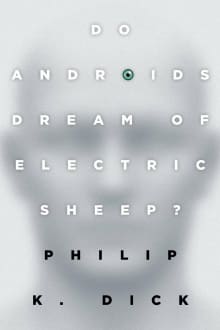
Book description
As the eagerly-anticipated new film Blade Runner 2049 finally comes to the screen, rediscover the world of Blade Runner . . .
World War Terminus had left the Earth devastated. Through its ruins, bounty hunter Rick Deckard stalked, in search of the renegade replicants who were his prey. When he…
Why read it?
20 authors picked Do Androids Dream of Electric Sheep? as one of their favorite books. Why do they recommend it?

I teach sci-fi, but reluctantly admit that much sci-fi is, well, bad: formulaic or cheesy geekiness, and impenetrably long book series. I am surprised how well Dick's 1968 novel holds up, and how good it is. What appears to be a formulaic noir-detective pastiche turns into a deeply problematic rumination on what, exactly, is human? In a post-nuclear setting of ruins, few people, and so few animals that consuming them has become horrendously unthinkable, what is left of civilization is augmented by artificial animal pets as well as semi-reanimated human-robot-androids ("andys," renamed "replicants" in the 1982 Bladerunner adaptation). As his…

I knew the film Blade Runner before I read this, the novel upon which it's based, but I was not prepared for the richer complexities of the novel.
My favorite parts of the novel, a bizarre new religion and the extinction of all but human and animal life, barely make it into the film. Even the androids, built to be slaves, are much more nuanced and complex than in the film. I loved the conclusion of the book, which affirms the beauty of life, both natural and mechanical.
From Dennis' list on transform how we see ourselves in the world.

Philip K. Dick’s seminal work basically jumpstarted the cyberpunk genre. It gives the genre form and breathes life into its android shell. The scope of Dick’s impact on science fiction and pop culture cannot be overstated.
I love this book because it delves into deep philosophical questions about consciousness, empathy, and what it means to be human. As a cop myself, I love Deckard’s character development, especially as he struggles with the morality of his actions in a world where humans and replicants are virtually indistinguishable.
From Stu's list on cyberpunk that revolutionized the genre.
If you love Do Androids Dream of Electric Sheep?...

No sci-fi noir list is complete without this book by Philip K. Dick. It’s the basis of the movie Blade Runner, but significantly different in tone and content. I love it because it deals with moral and ethical issues around how we deal with the real and imitating things in our world.
As the title implies, it’s a book full of questions, and the answers aren’t always easy.
From Anthony's list on morally complex sci-fi noir books.

What I love most about this book is how it haunts me with questions about being human. I’m captivated by how the novel blurs the line between machines and humans. What does it even mean to be a construct of programming when even organic humans are subjected to it?
The deepest idea that makes me return to it is the parallel with robotic animals; as someone who deeply loves animals, imagining a world without them is gut-wrenching. My cat, Inari, has been with me all my adult life. Would I love her less if she were robotic? Could I love…
From April's list on scifi that make us meditate on our humanity.

I liked the concept of this story and the way it provokes the imagination.
The world the author creates is engrossing, and the narrative dives into the exploration of humanity's existential dilemmas. It grapples with concepts like reality vs. illusion, life vs. artificial existence, mind manipulation, intellect vs. cognitive impairment, decay vs. renewal, the significance of religion (whether genuine or imagined), and the importance of individualism vs. conformity.
This story was the source material for the Bladerunner movies and is considered one of the best of the genre, and it is easy to see why.
From Kaeleb's list on sci-fi fantasy crime stories that will blow your mind.
If you love Philip K. Dick...

This is a seminal story about the relationship between real and synthetic humans. It is a foundational component of the ensuing 50 or so years of sci-fi fiction.
What I particularly enjoy about the story is the ongoing struggle to clearly define what it means to be human. Dick addresses numerous important aspects of this struggle, ranging from the mundane to the theological.
From Brian's list on thrillers that highlight the benefits and risks of cutting-edge technology.

The late American master sci-fi author Philip K. Dick, or just PKD, wrote 44 novels and some 121 short stories. Even if you have never read one of them, you’ve seen the many movies and TV Series based on them.
This novella was the inspiration for Ridley Scott’s classic movie Blade Runner (the original). Like the movie, it portrays sci-fi as the mirror opposite of the bright Star Trekian sci-fi. Here we get cyberpunk (or tech-noir)—ubiquitous neon lights barely illuminate the dark shadows of this future world.
Mankind has been forced off-world, but those who remain on Earth collect any…
From Austin's list on cyberpunkish sci-fi books that are worth the hype.

For me speculative fiction is about twisting one aspect of the real world, and then playing with the consequences. I love the way that Philip K Dick does this.
Some of his ideas seem absurd, but as a reader you quickly buy into them. This is not a traditional crime novel in any sense, but is about a bounty hunter tracking down escaped androids. As he confronts questions about his own humanity, it raises ethical issues for the reader as to what it is to be human.
Like all Dick’s works it is clever, entertaining, and thought-provoking.
From Guy's list on speculative crime.
If you love Do Androids Dream of Electric Sheep?...

I read this book out of curiosity after deep disappointment with Bladerunner, the film it inspired, and was delighted to discover it is so much better! Dick paints a convincing picture of machines that are superficially human but completely lacking empathy and any sense of responsibility for their actions. And of a hero just too human to get the better of them. Dick avoids drawing the parallels between robot use and slavery which I always find unhelpful to debate on the ethics of AI; instead, he gives us a glimpse into the minds of manufacturers of ethically questionable products,…
From Ariadne's list on sci-fi on how advanced AI fits into human society.
Want books like Do Androids Dream of Electric Sheep??
Our community of 12,000+ authors has personally recommended 100 books like Do Androids Dream of Electric Sheep?.



